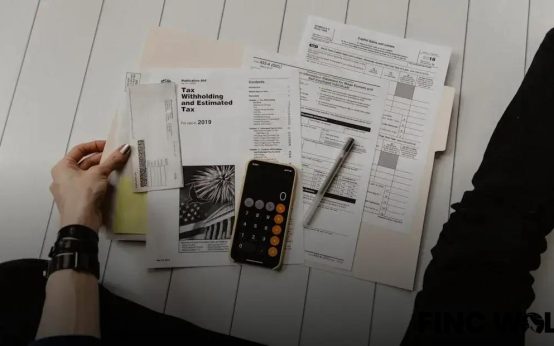Finding the best ways to reduce your mortgage payments can significantly ease your financial burden. By exploring various strategies like refinancing, negotiating rates, or adjusting your payment plans, you can save money and reduce stress. Learn how small changes can have a big impact as you read on.
Refinance Your Mortgage
When looking for effective ways to reduce your mortgage payments, one option stands out: refining your mortgage. This process involves replacing your existing loan with a new one, usually with more favorable terms. There are a few key benefits to refinancing that can significantly impact your financial situation.
Lower Interest Rates: Refinancing often offers the opportunity to secure a lower interest rate. Mortgage rates fluctuate over time, so if they have decreased since you first took out your loan, refinancing could lower your monthly payments.
Change in Loan Term: You can also adjust the length of your loan during refinancing. Opting for a longer term reduces the monthly amount. However, keep in mind that extending your loan term may increase the total interest paid over time.
Switching from an adjustable-rate mortgage (ARM) to a fixed-rate mortgage is another reason homeowners consider refinancing. A fixed rate provides stability in monthly payments, ensuring they’re not subject to rises in interest rates in the future.
Consider Your Financial Goals
Before deciding to refinance, evaluate your long-term financial goals. The process may involve closing costs and other fees, so it’s vital to ensure that the potential savings outweigh these costs. Additionally, assess how long you plan to stay in your home, as savings accumulate over time.
Consult with a knowledgeable mortgage professional to explore the best refinancing options for your needs. This expert will provide insights on current market trends and guide you in making the most informed decision.
Negotiate a Lower Interest Rate

One of the most effective ways to reduce your mortgage payments is by negotiating a lower interest rate. Start by reviewing your current loan terms to understand the interest rate you are currently paying. Gather information about current market rates to determine if there’s room for negotiation.
Contact your lender and highlight your positive credit history and consistent payment record. Lenders may be willing to offer a lower rate to retain a reliable customer. If the market rates have dropped significantly since you first locked in your mortgage, use this change as leverage.
Consider seeking quotes from other lenders to compare and possibly use as a bargaining chip with your existing lender. Also, inquire about other loan products that might better suit your current financial situation. If your current lender cannot match a competitor’s offer, be prepared to switch for better terms.
Always ensure you understand any fees or costs associated with renegotiating your loan. Evaluate these costs against the potential long-term savings from a lower interest rate to make an informed decision. Negotiating a better rate could lead to substantial savings over the life of your mortgage and lower your monthly payments significantly.
Extend Your Loan Term
Extending your loan term can be a viable strategy to reduce your monthly mortgage payments. However, it’s essential to consider the long-term impact on the total interest paid over the life of your loan. By extending the term of your mortgage from, for example, 15 to 30 years, the immediate benefit is practically a lower monthly payment, which can provide much-needed financial relief.
When you prolong the mortgage duration, the principal is spread out over a more extended period, resulting in decreased monthly obligations. This approach can be beneficial if your main goal is to increase monthly cash flow. Nevertheless, with a longer repayment period, it’s crucial to remember that you’ll spend more on interest overall, increasing the total cost of the mortgage.
It’s also essential to consider different types of loans. Some lenders offer specialized programs to help borrowers extend their loan terms without refinancing. This option could be suitable for those who want to avoid the hassle of refinancing or can’t refinance due to credit issues.
Analyze Before You Extend
Before deciding to extend your loan term, assess all possible implications. Use calculators to understand the differences in payment amounts and interest paid. This way, you ensure you’re making an informed decision that aligns with your financial goals and capabilities.
Make Extra Payments

Making extra payments on your mortgage can be a powerful way to reduce your overall debt faster. This strategy not only shortens the term of your loan but also saves you money on interest over time. By applying additional funds directly to your principal balance, you decrease the total amount of interest your mortgage will accrue.
For example, making one extra payment per year might seem small, but it could potentially shave off several years from your mortgage term. Start by scheduling a monthly budget review to identify any surplus funds that can be directed toward your mortgage. Organized financial planning can uncover extra cash flow without significantly compromising your lifestyle.
Be Strategic with Your Payments by specifying that additional monies are applied to the principal rather than the interest. This ensures you gain maximum benefit from the extra payments. Additionally, if unexpected financial windfalls occur, such as bonuses or tax refunds, consider allocating a portion of them to your mortgage.
Finally, always check with your lender to confirm there are no prepayment penalties. Some mortgages levy fees for paying off the loan earlier than the agreed term. Clarifying this beforehand avoids unexpected charges that could negate the benefits of extra payments.
Consider a Biweekly Payment Plan
One effective strategy to ease your mortgage burden is by adopting a biweekly payment plan. Instead of making a single monthly payment, you would split your mortgage payment into two smaller ones, paid every two weeks.
This approach effectively results in making one extra payment each year, which can significantly reduce the total interest paid over the life of the loan. With each extra payment, you steadily chip away at the principal balance more quickly, shortening the loan term and saving you money.
Transforming your monthly payment schedule to a biweekly one can, over time, offer substantial savings and contribute to financial health. It also aligns well with typical payroll cycles, making it an efficient budgeting move.
Some lenders offer automatic biweekly payment options, while others may require setting it up yourself through your bank. Ensure your lender credits your account correctly to maximize potential savings. Review your mortgage terms, lender policies, and any potential fees to ensure you’re truly gaining from this repayment plan.
Drop Private Mortgage Insurance

Eliminating Private Mortgage Insurance (PMI) can significantly reduce your mortgage payments. PMI is often required when your down payment is less than 20% of the home’s purchase price. However, as you gain more equity in your home, getting rid of this expense becomes feasible.
An essential step to dropping PMI is understanding your home’s current value. Getting a home appraisal can help determine if you’ve achieved the necessary equity. Typically, lenders allow you to cancel PMI when your equity reaches 20% or more. Be proactive and reach out to your lender to discuss the option of canceling PMI once you believe you’ve reached this threshold.
Additionally, increasing your home’s value through improvements can accelerate the process. Consider strategic upgrades that enhance value and functionality.
Track your equity
carefully using mortgage statements and home value tools to estimate when you might be eligible to eliminate PMI.
Each lender has different policies, so familiarize yourself with your mortgage agreement and speak with your lender to verify their specific requirements for dropping PMI. Ensure you meet all their conditions and provide any necessary documentation, like proof of home value or payment history, to support your request.
Finally, maintaining a strong credit score helps keep your mortgage terms favorable, making it easier to negotiate with the lender if needed. Eliminating PMI is a straightforward method to cut down your mortgage costs, thus easing your financial burdens in the long run.





